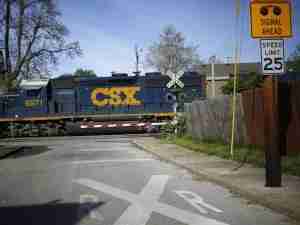German rail strike spreads to passenger trains
posted by AJOT | Apr 22 2015 at 03:11 PM | Intermodal
Businesses and millions of commuters faced delays and disruptions in Germany on Wednesday after 3,000 train drivers walked off the job to back their claims for higher pay and negotiating rights.
Hundreds of commuter and long-distance trains were cancelled when the small but powerful GDL union expanded a 66-hour strike to passenger routes on Wednesday after freight trains stopped on Tuesday.
The strike was a major disruption in a country where work stoppages are rare thanks to a collective bargaining system that usually settles disputes at the negotiating table.
It also came as Germany's overall economy showed further signs of strength on a tide of strong private consumption bolstered by rising employment and bigger paychecks.
Both the GDL union with its 20,000 members and the railways, which has about 200,000 employees, blamed each other for the breakdown in talks that led to the strike that also created traffic jams in Berlin and across the country.
"Our message to passengers is: they should protest against the railway's board because they're the ones to blame for this ... They're only provoking us," said GDL union leader Claus Weselsky, who has been criticised in the media for his hardline tactics.
Ulrich Weber, a member of Deutsche Bahn's board leading the wage talks, said the GDL refused to sign a preliminary agreement reached last week that could have averted the strike.
"We wanted to get an agreement at the negotiating table and we've demonstrated we're willing to do that," Weber said.
Germany's usually reliable rail network carries about 5.5 million passengers a day.
Deutsche Bahn also transports about a fifth of Germany's freight -- more than 620,000 tonnes each day in Europe's biggest economy. Economic institutes have warned that the strike could cost companies 100 million euros each day.
The strike began with freight trains on Tuesday afternoon and was expanded to passenger travel from 2 a.m. (0000 GMT) on Wednesday, idling trains across the country, especially in Berlin, Frankfurt and Mannheim, German rail said.
GDL wants a 5 percent pay rise and the working week to be reduced to 37 hours from 39. It also wants the right to negotiate on behalf of other employees including train stewards.
Deutsche Bahn said that only about 244 of the usual 805 trains were running. (Reuters)







